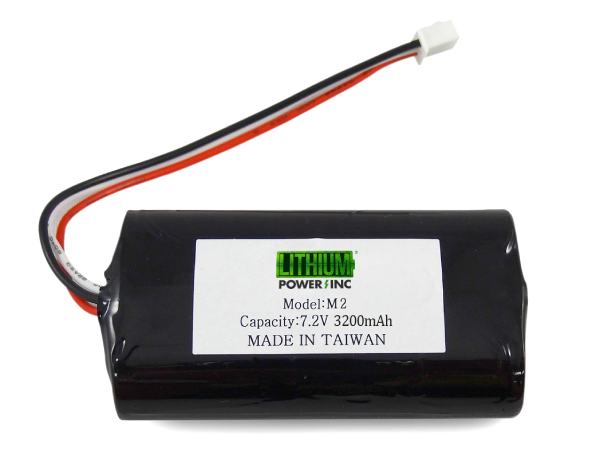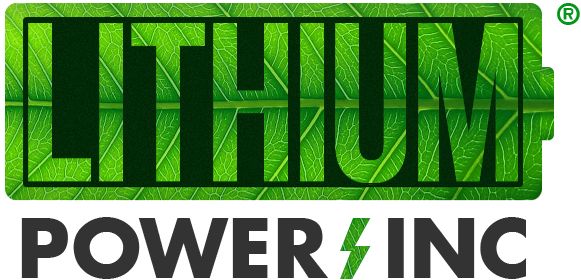 Advanced lithium battery technologies bring unmatched efficiency and convenience to a wide range of devices, from smart phones to portable medical devices. The advantages are significant. Using a lithium battery makes the device lighter and also extends its operating hours between charges, making it much more useful in delivering medical care.
Advanced lithium battery technologies bring unmatched efficiency and convenience to a wide range of devices, from smart phones to portable medical devices. The advantages are significant. Using a lithium battery makes the device lighter and also extends its operating hours between charges, making it much more useful in delivering medical care. As you might expect, incorporating lithium batteries safely into their designs is not only a major concern but also a challenge for medical device developers. Thankfully, a number of regulators like UL, IEC and FDA offer certifications to regulate the safety of medical devices and the lithium batteries that power them. All the certificates focus on the secure and safe operation of the medical device by end users within its targeted operational environment. Lithium Power believes that every medical device provider must follow the safety certificate guidelines to provide for the safety and comfort for their users. This is an issue, because the current limited knowledge about lithium battery technology and the liability risk of adapting lithium battery technology can create a greater risk profile for the device in question. Medical device developers need to fully understand and accommodate the characteristics of lithium batteries in their product designs to minimize risk and liability exposure. As an example, those developers who must use rectangular-shape lithium polymer (Li-Po) to fit in their medical device can encounter Li-Po battery inconsistency performance, expansion ratio after usage and reliability issues. We have the knowledge to design a battery to perform well under those adverse conditions.
As you might expect, incorporating lithium batteries safely into their designs is not only a major concern but also a challenge for medical device developers. Thankfully, a number of regulators like UL, IEC and FDA offer certifications to regulate the safety of medical devices and the lithium batteries that power them. All the certificates focus on the secure and safe operation of the medical device by end users within its targeted operational environment. Lithium Power believes that every medical device provider must follow the safety certificate guidelines to provide for the safety and comfort for their users. This is an issue, because the current limited knowledge about lithium battery technology and the liability risk of adapting lithium battery technology can create a greater risk profile for the device in question. Medical device developers need to fully understand and accommodate the characteristics of lithium batteries in their product designs to minimize risk and liability exposure. As an example, those developers who must use rectangular-shape lithium polymer (Li-Po) to fit in their medical device can encounter Li-Po battery inconsistency performance, expansion ratio after usage and reliability issues. We have the knowledge to design a battery to perform well under those adverse conditions.
 To comply with all medical certifications, the lithium battery has to be produced by a UL-certified factory. The production of a lithium battery, from its chemistry production, through pack assembly and final testing, all must be conducted in a UL-certified facility.
To comply with all medical certifications, the lithium battery has to be produced by a UL-certified factory. The production of a lithium battery, from its chemistry production, through pack assembly and final testing, all must be conducted in a UL-certified facility.
No medical device manufacturer should buy a lithium battery from a non-UL-certified factory, as they will not gain FDA approval.
To serve our clients, therefore, Lithium Power, Inc. has taken all the steps necessary to obtain UL certification for our manufacturing facilities.
To obtain FDA approval, there were tremendous requirements to provide documentation for testing, safety and quality standards and performance by the factory that received UL certification.
There are reams of documentation requirements from UL, IEC and FDA to ensure that medical devices are produced safely, and will perform safely when used in a medical environment. The regulators may not know exactly what the medical device does. But, they do understand the materials involved and offer guidelines to the medical device manufacturer to produce their product in a way that prevents a malfunction that could lead to a person’s injury or death. The goal is to ensure that accidents will not happen. These guidelines can also help the OEM and its supply chain to trace the root cause if a mistake happens to prevent the mistake from happening again. To track responsibility properly, these regulators requires complete documentation from both the device manufacturer and the lithium battery manufacturer.
Lithium Power has been designing and manufacturing lithium battery pack solutions for medical applications for years. The professional knowledge we have gained make us experts at finding the right recipe of lithium chemistry, combined with a properly designed Smart Battery Management System (BMS) that meets the specific needs of portable medical devices.
Given that depth of experience, it makes sense that medical device developers now work with Lithium Power Inc. as their professional medical lithium battery maker rather than trying to develop their own battery solution in-house. We take care of the technical challenges of integrating the battery power in the way that best balances performance and safety.
Our medical product lines are also diverse. We can support all medical devices with battery-power voltage requirements ranging from 3.7V to 60V DC and capacity 450mAh to 80Ah.
OEMs and other medical device developers should check with Lithium Power for professional advice or a collaboration proposal before making their next move. For more details about how Lithium Power can design the best solution for the power needs of your medical devices, please refer to our Custom-made Design page.
Lithium Power’s M2 is a medical grade battery product designed for medical devices with FDA class 2 certification. The following description outlines Lithium Power’s standard medical-grade lithium battery pack – the M2.
M2 in
Design Phase
The design of M2 fully addresses OEM safety concerns. The criteria we used in our M2 development process considered the worst-case scenarios for abusing the lithium battery in any operational setting. For example:
- Medical device caught in a fire: The mechanical design of M2 allowed the shape of the battery pack to change, preventing an explosion that could eject debris that could cause injury.
- Redundancy in the design of the battery’s BMS to meet all what-if safety concerns of UL examiners.
- Tested via high temperature burn-in, low temperature burn-in
- Long cycle-life tests with batch quantities
- Drop and shock test
- Physically destructive penetration tests
These tests were conducted to review the design of M2 for how well it performed in protecting users in the event of any sort of damage or environmental catastrophe. We can report with high confidence that our battery design passed these tests before it was approved for production.
M2 Production in
UL-Certified Facility
 To comply with all medical certifications, the lithium battery has to be produced by a UL-certified factory. The production of a lithium battery, from its chemistry production, through pack assembly and final testing, all has to be conducted in a UL-certified facility. In the process of our application for FDA approval, there were tremendous requirements to provide documentation for testing, safety and quality standards and performance by our UL-certified factory. No medical device manufacturer should buy a lithium battery from a non-UL-certified factory, as they will not gain FDA approval.
To comply with all medical certifications, the lithium battery has to be produced by a UL-certified factory. The production of a lithium battery, from its chemistry production, through pack assembly and final testing, all has to be conducted in a UL-certified facility. In the process of our application for FDA approval, there were tremendous requirements to provide documentation for testing, safety and quality standards and performance by our UL-certified factory. No medical device manufacturer should buy a lithium battery from a non-UL-certified factory, as they will not gain FDA approval.
Lithium Power’s factories are all UL-certified for our medical battery product lines.
M2 in Support of Quality
and Safety Documentation
As mentioned above, there are reams of documentation requirements from UL, IEC and FDA to ensure that medical devices are produced safely, and will perform safely when used in a medical environment. We actively support our OEM client’s application with all the documentation they need to obtain regulatory approval.
 Features of M2:
Features of M2:
- UL/IEC/UN safety guideline compliant
- Quality and safety documentation ready to support the OEM’s FDA application
- Safety design for overcharge/discharge protection
- Safety design for over-current protection
- Safety design for high-temperature performance and protection
- Unique mechanical design to prevent injury in catastrophic situations
- Accelerates device development timetable (Faster to market)
Specification of M2
| Model No. | : M2 |
| Application | : Medical |
| Battery Type | : Lithium Ion |
| Battery Configuration | : 2S1P |
| Nominal Voltage | : 7.2 V |
| Maximum Charge Voltage | : 8.4 V |
| Discharge Cut-off Voltage | : 5.8 V |
| Capacity | : 2200 mAh (typical*1) |
| Standard Charge Current | : 0.44 A |
| Standard Discharge Current | : 0.44 A |
| Maximum Charging Current | : 2.2 A |
| Maximum Discharging Current | : 4.4 A (Continuous) |
| Operating Temperature | : 0°C to 45°C (Charging) -20°C to 60°C (Discharging) |
| Storage Temperature | : 0°C to 35°C (12 months), Recoverable Capacity: 80%*2 |
| Safety Device | : Each pack is equipped with a protection circuit against over-voltage, over-discharge and over-current |
| Dimension (L x W x H) | : 69 mm x 37.8 mm x 20.5 mm Max. |
| Safety Regulation | : UN38.3, UL1642, UL2054, IEC62133 |
Mark:
*1: Under Standard charge and standard discharge (at 25°C)
*2: Recoverable Capacity= Discharge Time after Storage ÷ Initial Discharge Time*100. The discharge time is measured by fully charging the battery at 25°C and then discharging it at a current of 0.44A to 2.75V per cell in series.
Please contact us at info@LithiumPowerInc.com for more technical information.
Please refer Lithium Power's custom-made battery capabilities on our Custom-made Design page
Custom made battery solutions to meet specific needs for medical applications
Lithium Power, Inc. is devoted to using clean energy technology to promote sustainability and create a better world. We plan on developing high-safety, quality batteries for medical applications. Our medical battery can be customized to integrate your creative ideas and meet specific industrial needs. Please contact us at info@LithiumPowerInc.com for additional information or to discuss potential collaborative projects.
